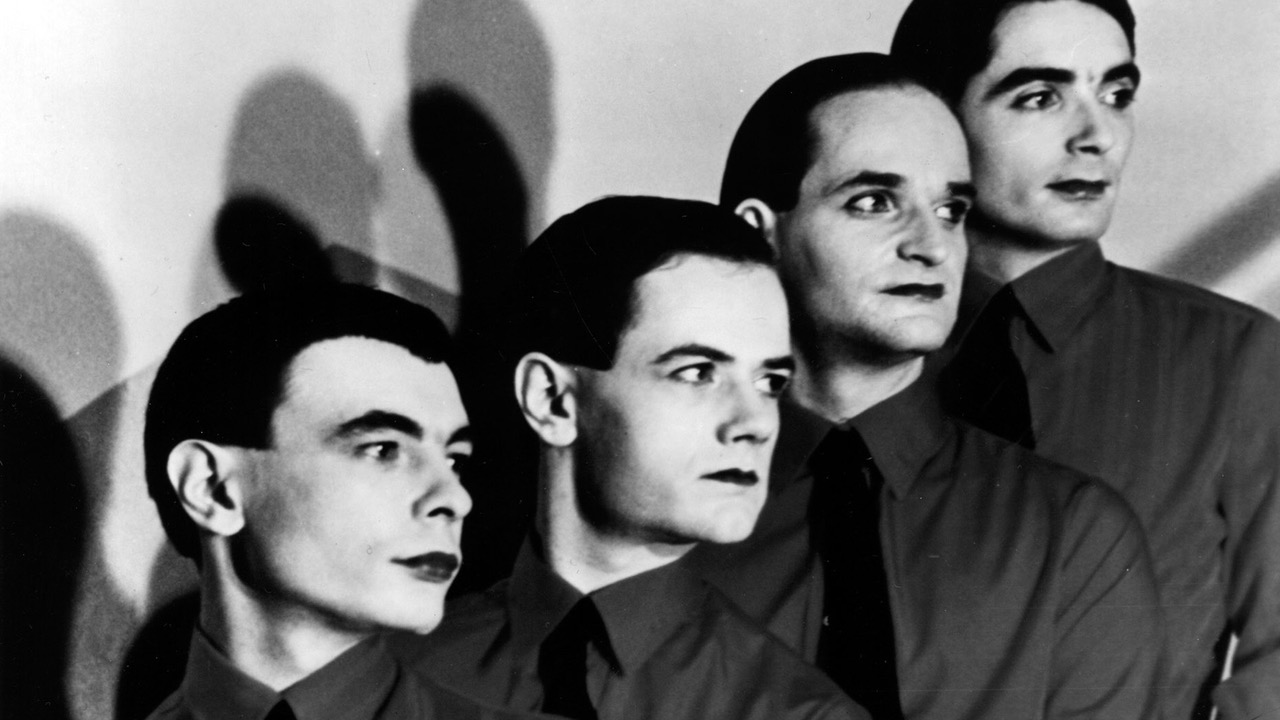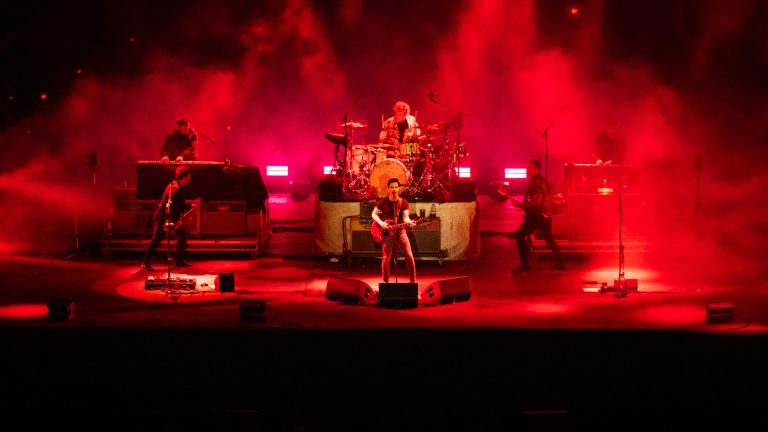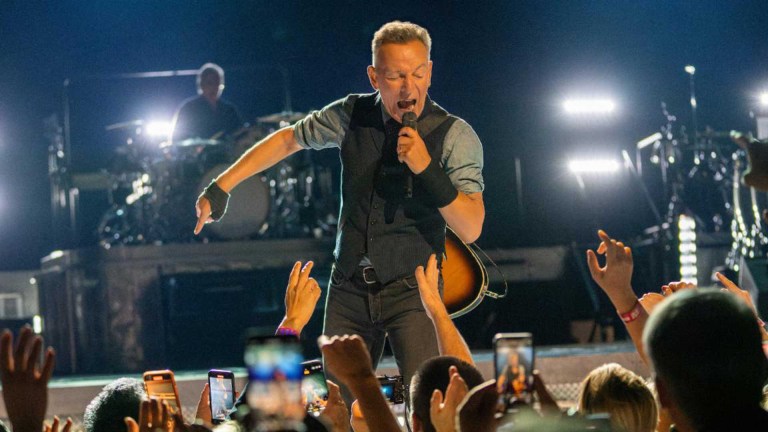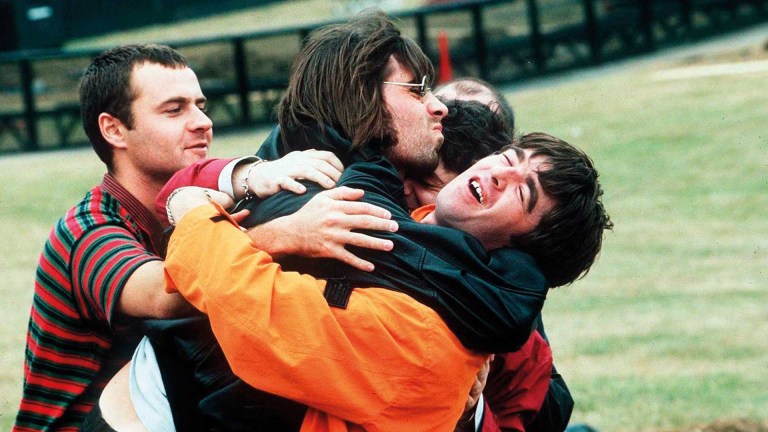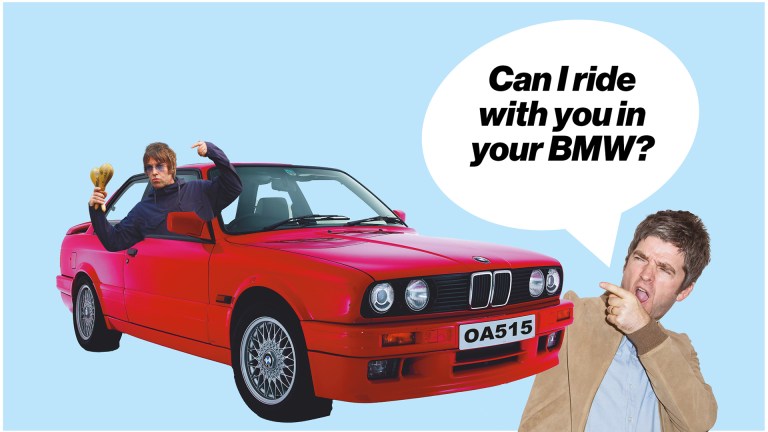It’s a tricky question: Are Kraftwerk more influential than The Beatles? By the looks of it, the answer would be firm yes. Just open your ears: the idea of using machines to make electronic music has been deeply imprinted on the DNA of contemporary pop music. British synth-pop, club-music styles like techno and house, hip-hop and R’n’B, experimental electronica and Japanese bubblegum pop have all, in one way or another, been influenced by Kraftwerk.
Rewind to 1974. Ralf Hütter and Florian Schneider, aided by Karl Bartos and Wolfgang Flür, were a four-piece from Düsseldorf who gave birth to the very future music that turned out to be the soundtrack of our 21st-century present. In their dingy studio in the red-light district near Düsseldorf main station, they conceived Autobahn, a 22-minute-plus electronic composition about driving on the German motorway. In German, the autobahn is so much more than a highway: it harks back to Hitler, who made extending the motorway network a national mission, it served as the backbone of the German economic miracle after the war, and it represents mobility, freedom, speed, to name but a few. A true German national symbol.
Kraftwerk’s electronic pop on Autobahn revolutionised German popular music, although the album of the same name was initially met with a lack of interest in their native country. Its momentous importance was not recognised. The same occurred in this country: NME was the first music magazine to review the record in early 1975 – and ended its assessment with a disdaining “For simple minds only.” Melody Maker likewise concluded its review with “Miss”, noting: “Odd noises from percussion and synthesiser drift out of the speakers without any comprehensible order while a few words are muttered from time to time in a strange tongue.” Yes, Kraftwerk sang in a strange tongue, their native German, because they did not want to copy the many German bands – retrospectively identified as the krautrock movement – who only aped Anglo-American rock music. But being continental does not go down well in England, particularly if you are German: when NME reprinted a long interview-essay on Kraftwerk by the US gonzo journalist Lester Bangs in September 1975, the article was accompanied by a photo of the band inserted into an image of supposedly the Party Convention Grounds in Nuremberg. This unmistakeably insinuated that Kraftwerk were bona fide Nazis.
Crude Hitler jokes, nasty anti-German jibes and Teutonic taunting continued in the British music press for a few albums. One journalist (I bet/hope he regrets this now) reported back from the Paris press launch of The Man-Machine that the album, now universally recognised as a landmark in the development of electronic pop music (remember, it contains Kraftwerk’s UK number one hit The Model), sounded to him like “the soundtrack for an afternoon tea break at Krupp’s. Two sides of this and we are almost off to invade Poland. Czechoslovakia, here we come!” And much worse…
Fast forward to 2017, and Kraftwerk are playing their first full UK tour for 13 years, comprising 12 dates that sold out almost immediately, despite the band not having released any new studio material since their 2003 album Tour de France Soundtracks. Every audience member wears 3D glasses because the concert is accompanied by eye-boggling, almost haptic/touchable visuals and ear-boggling, crystal-clear electronic sounds. The curtain lifts and Kraftwerk open their two-hour set with Numbers from the amazing Computer World album.
The mesmerising track, nearly 40 years old, still sounds as exciting as in 1981: an almost brutal piece of music with its relentless drum pattern and its radically reduced aesthetics, fuses form and function while a robot voice repeatedly recites of the numbers from one to eight in various European languages. The figures seem to hover over the musicians behind their consoles and are occasionally flying close past one’s face. What follows are all those timeless milestones from Kraftwerk’s impressive catalogue: the mighty Trans-Europe Express, the gorgeous Radioactivity or their signature tune The Robots, which is performed on stage by uncanny-looking life-size dummies. Plus a 13-minute version of Autobahn to boot.
